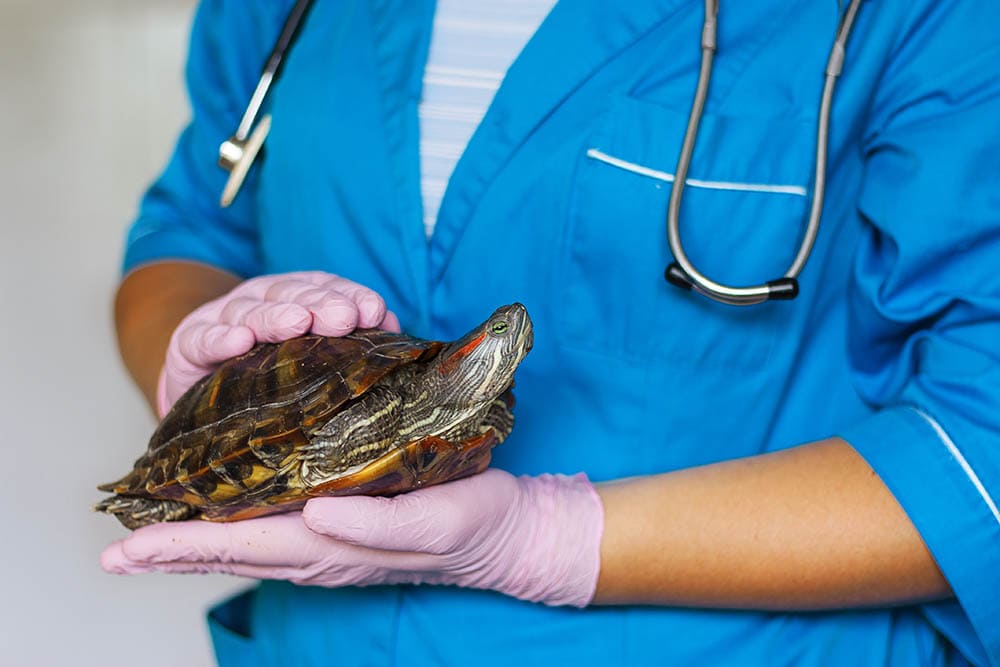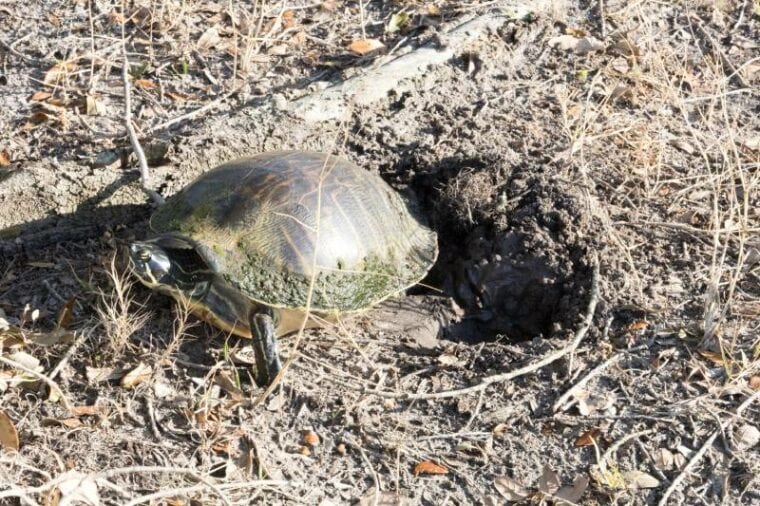
Turtles are remarkable creatures, with nearly 350 species around the world. Although all turtles are reptiles, lay eggs, and have hard shells, the species have more than a few differences. One of them is their procreation process, which begs the question; How many eggs does a turtle lay at once? A female turtle can lay 80 to 180 eggs per clutch. Some species lay far fewer eggs, and some lay quite a few more, depending on their size and other significant factors.
Do All Turtles Lay Eggs?
Yes, all turtles lay eggs. Interestingly, all turtle species, even sea turtles that spend their entire life in the ocean, lay their eggs on land in holes they make in the ground. After a female turtle lays eggs in the nest, she covers them with more dirt. About 2 to 3 months later, depending on the species, the eggs will hatch, and the baby turtles will dig their way to the surface.
Which Turtle Species Lays the Most Eggs?
Hawksbill turtles have the biggest clutches, often laying up to 200 eggs or more in a single nest! However, the average number of eggs a Hawksbill lays is about 150. They lay so many because so few make it to adulthood. Indeed, many marine turtles never even make it back to the sea.
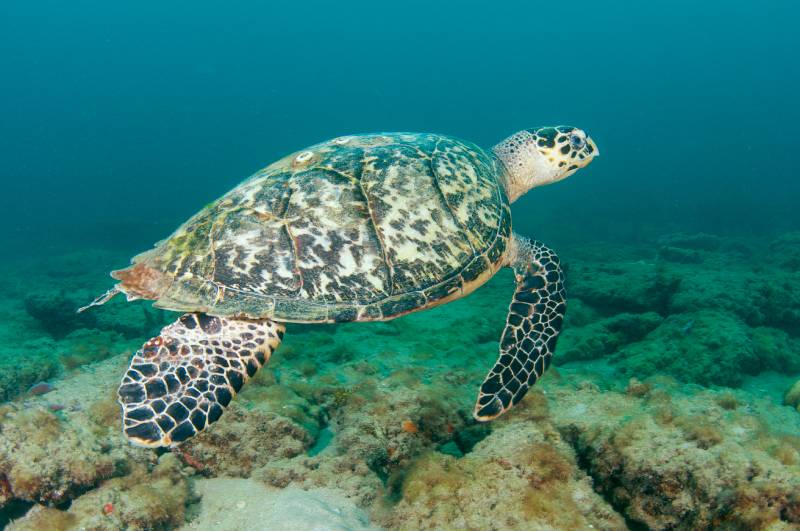
Which Turtle Species Lays the Fewest Eggs?
Among all turtle species, the Box turtle lays the fewest eggs: between three and nine per clutch. One reason for this is that the Box turtle is very small, especially compared to most aquatic turtles. The smaller the turtle, the fewer eggs a female can make and hold inside her body at one time.
As for marine turtles, the Flatback sea turtle has the distinction of laying the fewest eggs in her clutch, with an average of 50. They also have the smallest geographic range of all marine turtle species. For example, Flatback turtles don’t undertake long, open-ocean migrations and are usually found in water that’s less than 200 feet deep.
Which Turtle Species Lays the Biggest and Smallest Eggs?
The Hawksbill turtle, which lays the most eggs, also lays the smallest among the turtle species. The average Hawksbill turtle egg is approximately 1.5 inches in diameter and weighs about 1 ounce. The Leatherback turtle, on the other hand, lays the biggest eggs. Their eggs are slightly larger than 2 inches in diameter and weigh about 3.2 ounces.
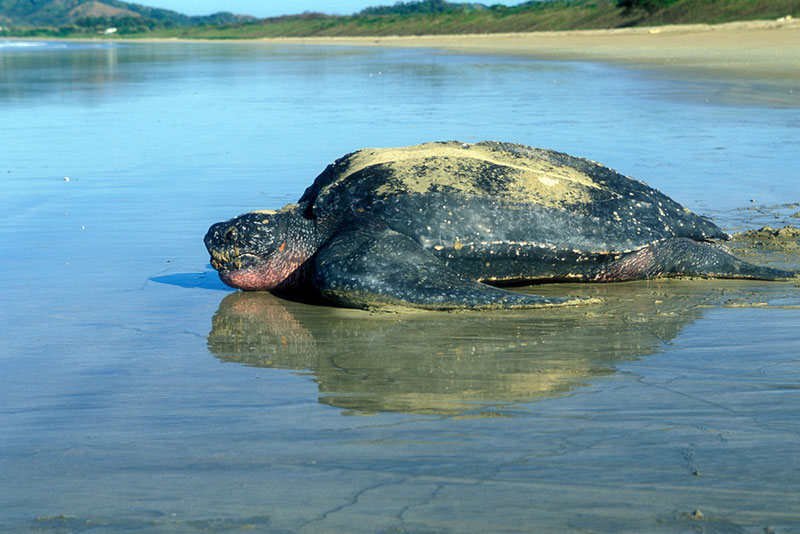
Do Female Turtles Need Male Turtles to Lay Eggs?
Female turtles are like female chickens, in that they lay eggs whether there is a male around to fertilize them or not. Once a female turtle reaches sexual maturity (which varies from one species to another), her body will produce eggs. If there are no male turtles around, she will still lay the eggs, even though, like the chicken eggs you buy at the grocery store, they will never hatch.
What’s even more fascinating is that if a female turtle has mated with a male in the past, that male’s sperm can survive in her body for several years. When the female turtle’s body produces eggs again, the eggs might get fertilized with the leftover sperm from her last mating. That’s why experts suggest incubating turtle eggs if you find them, as there is still a chance they will be fertilized and baby turtles will hatch.
What Is Temperature-Dependent Sex Determination (TSD) in Turtles?
Like several other reptiles, including the alligator, the temperature of the substrate where a turtle lays her eggs will determine the sex of most of the baby turtles that hatch. For example, when the temperature of the sand is warmer, more female turtles are hatched.
However, if the sand is cooler when the female lays her eggs, you’ll see more males being born than females. Interestingly, NOAA research suggests that warming global temperatures might affect the genetic diversity of many turtle species by causing more females to be born than males.1
Which Turtle Eggs Are the Rarest?
The rarest sea turtle in the world is Kemp’s Ridley turtle, which is an endangered species with approximately 9,000 nesting females worldwide. That makes their eggs quite rare, but not as rare as those from other turtles with smaller populations. They include the Vietnamese Pond turtle, of which there are less than 50 worldwide.
In 2008, the last remaining female Yangtze turtle passed away, but not before laying 80 eggs in her last clutch. Sadly, no eggs were fertilized, and no baby turtles hatched.
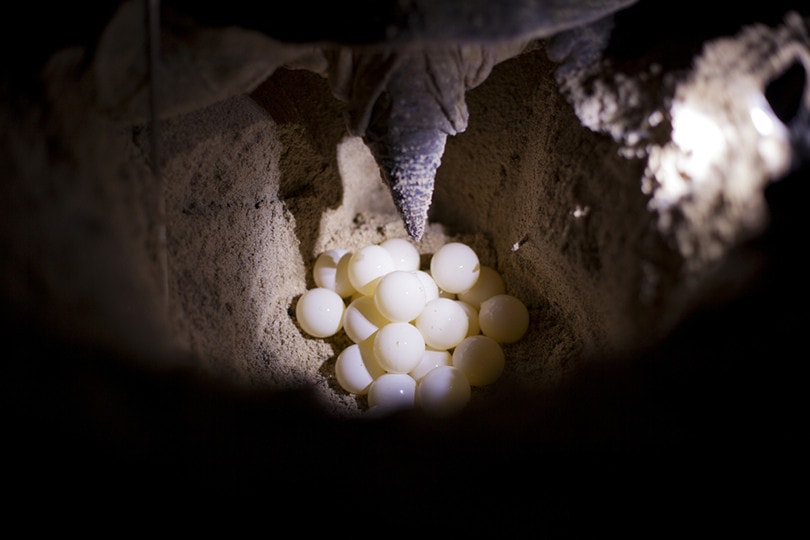
Turtle Clutch Comparison Chart
Below is an easy-to-use chart comparing several of the most well-known species and their respective clutch sizes. As you’ll see, there is a significant clutch size difference between species, with some laying far more than others.
| Turtle Species | Average Clutch Size |
| Box Turtle | 3–6 eggs |
| Flatback Turtle | 40–60 eggs |
| Green Sea Turtle | 100–120 eggs |
| Hawksbill Turtle | 140–160 eggs |
| Leatherback Turtle | 100–120 eggs |
| Mud Turtle | 3 to 10 eggs |
| Red-eared Slider | 15–30 eggs |
| Snapping Turtle | 20–50 eggs |
| Softshell Turtle | 30–70 eggs |
Final Thoughts
As we’ve seen, the different turtle species lay various numbers of eggs at once. Some turtles lay fewer than 10 eggs in a single clutch, while others can lay upwards of 200. All species lay their eggs on land in nests they create by digging holes. Marine turtles then go back to the sea, and land turtles seek out their land dwellings.
Like chickens, female turtles can and will lay eggs even if no males are present. Those eggs, however, will be infertile and thus incapable of producing baby turtles.
Featured Image Credit: Victoria Morgan, Shutterstock





